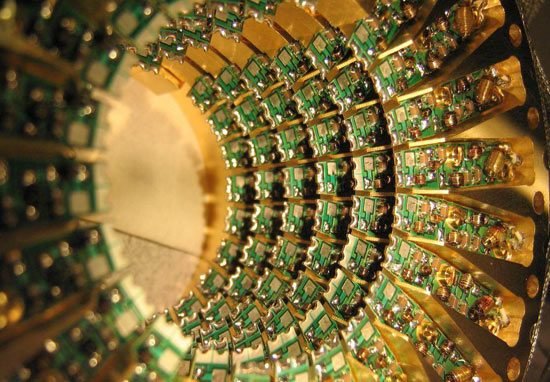Have you ever wanted to fiddle with a quantum computer, but found that there is no relationship that will allow you to enter the laboratory? If so, researchers at the University of Bristol have what you need: a "quantum cloud" device . This quantum cloud will give researchers and the public an opportunity to make an appointment to visit a miniature quantum chip in the university ’s research laboratory. This device will enable people to use quantum simulators to experiment with quantum computing, and also have the opportunity to apply for their experiments on this quantum light laser processor at the University of Bristol.

The quantum chip developed by the University of Bristol gives everyone the opportunity to experience quantum computers for free.
The chip size of the University of Bristol is about 70 × 3 mm, and it was first announced in 2011. Although it may not have many qubits, its miniature size is regarded as a breakthrough in this field. In contrast, NASA and Google are using a quantum processor developed by the controversial D-wave company. Although this chip from the University of Bristol cannot be programmed with complex problems like the D-wave system, it gives us the opportunity to experiment on a real quantum computer system for free.
The researchers wrote: "The quantum processor chip we developed is located in Bristol's laboratory, and we are continuing to explore, so it is a very advanced cutting-edge technology. This quantum processor will enable you to create and manipulate Own bits, and measure quantum phenomena of superposition and entanglement. "Once people get the opportunity to use quantum clouds, they can use this chip to create entanglement between photon pairs, manipulate photon states, and measure the impact of the external environment on photons.
One can also use a quantum simulator to test possible quantum experiments through a software simulation. Researchers at the University of Bristol promised that this simulator is very close to real equipment, and the great thing is that you can try different experiments without using a real quantum processor. The project leader, Professor Jeremy OBrien, said in a statement that it is very exciting considering the possible effects of using this technology more widely.
Jewelry Display Rack,Wood Jewelry Display Display Stand,Jewelry Display Window,Jewelry Display Rack For Retail
Dongguan Display Leader Co., Ltd , https://www.displayonestop.com